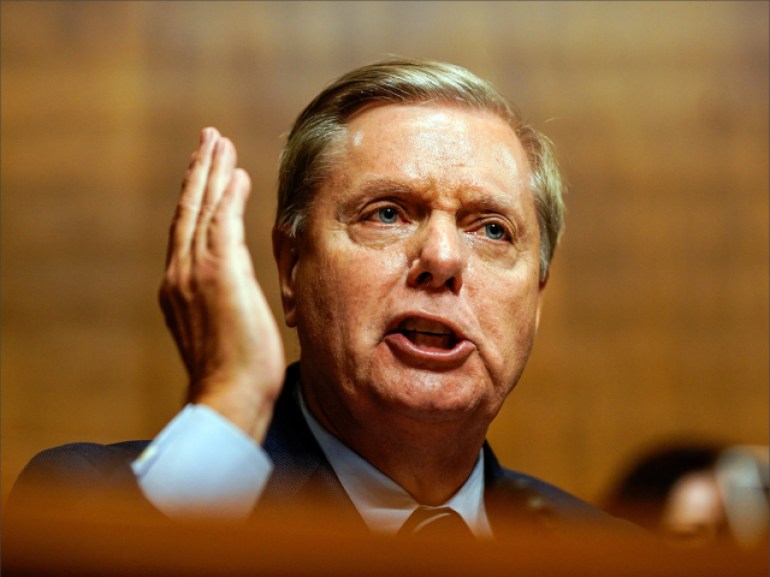US President Donald Trump issued a new immigration resolution extending the suspension of the granting of "green cards" and some work visas that are granted outside the United States until the end of the year, saying the goal is to "combat unemployment" in the country.
Trump's executive order signed on Monday extends travel and immigration restrictions to cover many temporary work visas, including those used by technology and transcontinental companies.
To counter the massive layoffs of millions of workers because of isolation measures taken to combat the Corona pandemic, Trump had decided two months ago to impose restrictions, including a 60-day suspension of the issuance of "green cards", and it granted permanent residence in the United States.
A senior administration official told reporters that the new executive order extends the ban on new visas to work in the United States until the end of the year and broadens its scope to include "H1-B" visas popular in the technology industry.
Exceptions
The new resolution also includes “H2-B” visas for people with modest skills (except for food industry workers) and “J” visas granted to academics and researchers, in addition to the “L” visas that companies use to transfer workers residing outside the country to their headquarters in the United States .
The senior official said that this "suspension" would prevent 525,000 foreigners from entering US soil and would provide jobs for Americans.
"President Trump is determined to get the Americans back to work as quickly as possible," the official added, requesting anonymity. The unemployment rate in the United States rose to 13.3% amongst workers in May, while it was 3.5% in February, due to containment measures imposed to combat the emerging corona virus.
Trump's popularity wanes
The deterioration in the labor market, the death of 120,000 people infected with the "Covid 19" and the massive demonstrations against police violence affected the Trump campaign, with his popularity diminishing to his Democratic opponent Joe Biden.
After his disappointing electoral rally in Tulsa, Oklahoma, last Saturday, he seeks to advance his campaign by following the same program of his successful campaign for 2016, which is to combat irregular migration.
Trump will go to the city of Yuma, Arizona, on Tuesday to celebrate the completion of the construction of 322 km of the wall he has ordered to be built on the border with Mexico to stop irregular migration to the United States. In parallel, Trump plans to reform the regular immigration system to attract the most qualified foreigners.
The senior US official emphasized that the freezing of the issuance of "H1-B" visas is a temporary measure pending the restructuring of the program, and transferring it from an annual "lottery" that secures programmers and other specialists to Silicon Valley, to a system that prioritizes the most valuable foreign workers.
The official said that Trump "will prioritize those workers who will be offered the highest salaries" as an indication that they are able to add value to the US economy.
Mixed reactions
The announcements immediately sparked mixed reactions, and the Associated Press said these new steps had largely gone to appease militants against immigration.
It quoted Mark Krikorian, executive director of the Center for Immigration Studies, which calls for restrictions, as saying that this was "a bold step by the Trump administration to protect American jobs," adding that these decisions "did not meet all of their demands included in the checklist for required actions, but groups The pressure in companies that were fighting hard to obtain exemptions to protect the arrival of cheap foreign workers has been largely rejected. "
The agency added that the decision regarding asylum seekers, will come into effect on August 25, and will make it more difficult for them to obtain work permits, among other things, such as extending the waiting period for application from 150 days to a year and banning applicants who cross the border in a manner illegal.
Republican Senator Ted Cruz, a close friend of Trump, welcomed the measures, calling it "an important act."
Exploitation of the epidemic
On the contrary, Andrea Flores, of the influential American Civil Liberties Union, considered it "neither a response to the epidemic, nor an economic response," explaining that "the epidemic was used to reshape immigration laws without going through Congress."
South Carolina Republican Senator Lindsey Graham, an enthusiastic supporter of Trump, has criticized her unusually, saying it would be "a burden to our economic recovery."
"Those who believe that regular immigration, especially work visas, are harmful to the American worker, do not understand the American economy," he wrote on Twitter.

